In today’s fast-paced business landscape, having the right tools to manage operations efficiently is crucial for staying competitive. Software Odoo, a well-known open-source ERP software, has gained significant attention for its comprehensive suite of business applications.
However, as companies in the Philippines seek solutions tailored to their specific needs, finding the right ERP software can be challenging. Whether you’re looking to enhance productivity, improve resource management, or explore options beyond Odoo, the market offers many alternatives.
In this article, we’ll guide you through 15 of the best software alternatives to Odoo, designed to streamline your business operations in the Philippines. Stay with us to discover the perfect fit for your company’s unique requirements.
Key Takeaways
|
Table of Contents

What is Odoo ERP?
Odoo ERP is a comprehensive Enterprise Resource Planning system designed to streamline and integrate various business processes into a single platform. It offers a wide range of modules that cater to different aspects of business management, including finance, sales, inventory, project management, and human resources.
By consolidating these functions, Odoo ERP helps businesses enhance operational efficiency, improve data accuracy, and facilitate better decision-making. Its modular architecture allows companies to customize and expand their ERP system according to their needs, making it a flexible and scalable solution for managing diverse business operations.
However, for those seeking Odoo CRM alternatives, exploring different CRM tools can also provide valuable insights and options tailored to specific business requirements.
Hashy AI Fact

Need to know!
Many businesses are switching from basic ERP tools to smarter AI-powered systems that automate operations, boost accuracy, and improve efficiency. One of the best is Hashy AI from HashMicro, packed with integrated features.
Get a Free Demo Now!
Why Look for an ERP Odoo Alternative
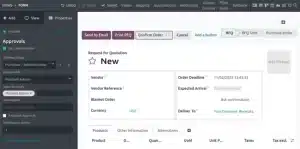
Although Odoo is a robust ERP solution, it might not match every organization perfectly. According to the CFO, You may be exploring alternatives for several reasons:
- Cost: Odoo ERP’s pricing might exceed your budget constraints, making it challenging to justify the investment. Seeking alternative solutions could help you discover a more affordable option within your financial limits.
- Complexity: The system’s complexity might be excessive for your requirements, potentially leading to inefficiencies and resource wastage. A simpler alternative could improve usability and productivity.
- Integration needs: Better integration with other software tools might be essential for streamlining your operations. An alternative that offers enhanced integration capabilities could significantly improve your workflow and efficiency.
- Support issues: If you need more dependable or accessible customer support, Odoo ERP’s support services might fall short of your expectations. Finding an alternative with superior support could enhance your overall user experience and problem resolution.
- Customization limits: If Odoo ERP does not offer the customization you need, it may limit your ability to adapt the software to your specific business processes. Exploring other options might provide the additional flexibility necessary for optimal performance.
Evaluating alternatives to Odoo ERP can help you find a solution that aligns more closely with your budget, requirements, and business objectives. By considering various options, you can ensure that your ERP system provides the efficiency, customization, and support needed to drive your business forward.
15 Odoo ERP Software Alternatives For Companies in the Philippines
While Odoo ERP offers a robust feature set, businesses in the Philippines need to explore other options that may better suit their specific needs and operational requirements. Below, we present 15 compelling alternatives to Odoo ERP that can provide better functionality and flexibility in the Philippines.
1. Software HashMicro
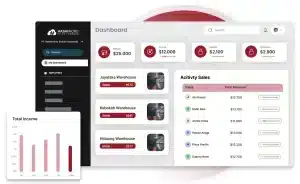
HashMicro is a comprehensive ERP solution that stands out as a robust alternative to Odoo for businesses seeking the best ERP software platform. This solution provides a broad range of modules designed to meet diverse business requirements, including finance, human resources, inventory management, and sales.
The adaptability and customizability of HashMicro make it an excellent choice for companies aiming to modify their ERP system to fit specific operational needs.
Its intuitive interface and scalable solutions enable businesses to optimize their processes and enhance overall efficiency, positioning it as a compelling option for those exploring the best ERP software alternatives to Odoo ERP.
Below are some of the features offered by HashMicro, along with its advantages and disadvantages.
- Manage thousands of SKUs: This feature can manage thousands of SKUs efficiently with increased accuracy to reduce input errors, calculation inaccuracies, and stock discrepancies.
- Smart transaction bookkeeping: Smart Transaction Bookkeeping: This feature can automate the recording of all expenses, fees, bank reconciliations, and sales transactions seamlessly.
- Increase sales: Enhance sales by boosting team performance through simplified prospect monitoring, streamlined follow-ups, and accurate sales forecasting.
- Planned stock purchases: The system automatically triggers stock purchases when inventory levels approach the minimum threshold, ensuring smoother transactions and maintaining optimal stock availability.
- Fast stock opname: Quickly calculate stock availability and directly monitor product inflows and outflows with automatic updates.
- Production cost control: Comprehensive management of production costs, encompassing purchasing, production outcomes, and the handling of components from defective products.
|
Pros |
Cons |
|
|
To see how HashMicro can make your business operations easier and contribute to success, get a pricing plan to find out the software pricing calculation tailored to your business needs below.

2. Epicor
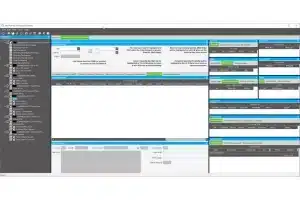
Epicor is a prominent ERP solution that serves as a notable alternative to Odoo for companies seeking advanced and tailored software options.
Known for its robust features and industry-specific solutions, Epicor caters to a variety of business needs, including manufacturing, distribution, and retail.
With a strong focus on scalability and integration, Epicor helps streamline processes, enhance operational efficiency, and support business growth.
|
Pros |
Cons |
|
|
3. Acumatica
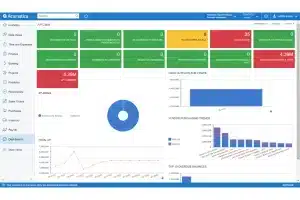
Acumatica is a versatile ERP solution that presents a strong alternative to Odoo for businesses in the Philippines. This cloud-based software offers a wide range of modules, including financial management, distribution, manufacturing, and project management.
Acumatica erp is designed to provide comprehensive support for various business processes while ensuring scalability and flexibility. It’s best known for its high customer satisfaction ratings, offering a flexible and scalable solution that adapts to various business needs.
|
Pros |
Cons |
|
|
Also read: Top 12 Acumatica ERP Alternatives & Competitors in 2024
4. SAP Business One
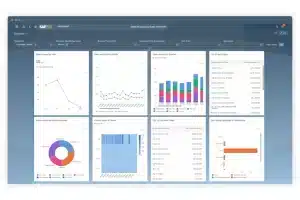
Designed specifically for small to mid-sized enterprises, SAP Business One integrates core business functions such as finance, sales, inventory, and customer relationship management into a single, unified platform.
This software is known for its robust scalability, allowing companies to adapt the system as they grow. Additionally, SAP Business One’s strong analytical tools and real-time data processing capabilities enable businesses to make informed decisions quickly and efficiently.
|
Pros |
Cons |
|
|
5. Microsoft Dynamics 365
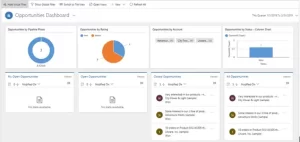
Microsoft Dynamics 365 is a complete suite of business applications that combines CRM and ERP capabilities. It provides an integrated platform for companies to manage various aspects of their operations.
The platform is ideal for organizations in the Philippines looking to streamline business processes, improve customer engagement, and drive growth.
Dynamics 365 offers robust functionality that can be customized to suit specific business needs across industries. Additionally, its cloud-native nature ensures scalability, flexibility, and accessibility, making it a powerful alternative to Odoo ERP.
|
Pros |
Cons |
|
|
6. Striven
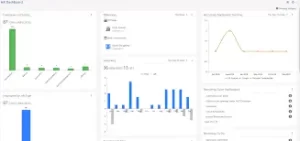
Striven Software is an all-in-one business management platform designed to streamline operations for companies of all sizes. Offering a wide range of features, including accounting, project management, inventory control, and CRM, Striven provides a unified solution to help businesses in the Philippines enhance efficiency and productivity.
Whether managing finances, tracking projects, or engaging with customers. Striven’s system also provides companies with the capabilities to support and grow their business.
|
Pros |
Cons |
|
|
7. ERPNext
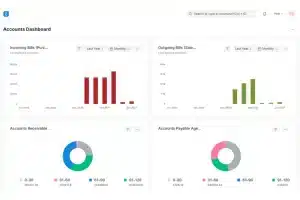
ERPNext is a versatile, open-source ERP solution designed to meet the needs of businesses across various industries. It offers a comprehensive suite of tools, including accounting, inventory management, human resources, and customer relationship management, all within a single platform.
|
Pros |
Cons |
|
|
8. Dolibarr
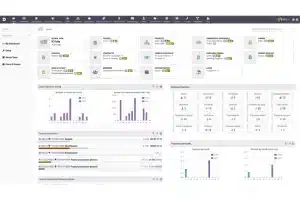
Dolibarr is an open-source ERP and CRM solution that offers a wide range of tools to help businesses manage their operations efficiently.
With features like invoicing, inventory management, project tracking, and customer relationship management, Dolibarr provides a flexible platform suitable for small to medium-sized enterprises in the Philippines.
|
Pros |
Cons |
|
|
9. QNE Software
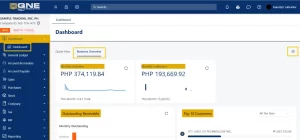
QNE Software provides a robust ERP solution tailored to the needs of businesses in the Philippines. This comprehensive platform offers a wide range of functionalities, including financial management, inventory control, and customer relationship management, making it a versatile alternative to Odoo ERP.
Its ability to integrate seamlessly with other systems and adapt to various business requirements makes it a valuable choice for companies seeking an effective and scalable ERP solution.
|
Pros |
Cons |
|
|
10. Software Multiview
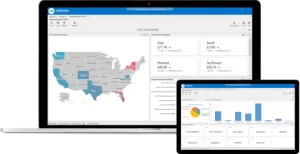
Multiview Software offers a robust ERP solution designed to support the complex needs of businesses in the Philippines. This platform provides an integrated approach to financial management, operational processes, and reporting, making it a strong alternative to Odoo ERP.
Multiview’s emphasis on real-time data access and comprehensive analytics ensures that companies can make informed decisions and streamline their operations effectively.
|
Pros |
Cons |
|
|
11. Oracle Netsuite
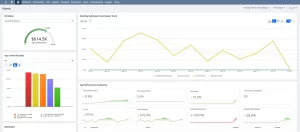
Oracle NetSuite is a leading cloud-based ERP solution designed to meet the diverse needs of businesses in the Philippines. As a comprehensive platform, it integrates key functions such as financial management, CRM, e-commerce, and inventory control into one system.
With a strong reputation for reliability and robust support, Oracle NetSuite offers a powerful alternative to Odoo ERP for companies looking to improve their business processes.
|
Pros |
Cons |
|
|
12. Sage 300
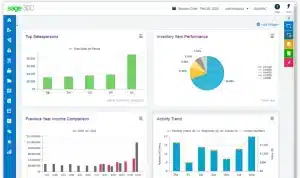
Sage 300 is a robust ERP solution designed to address the diverse needs of businesses in the Philippines. This comprehensive platform offers a range of features, including financial management, project accounting, inventory control, and customer relationship management.
Sage 300 is known for its strong reporting and analytics capabilities, which help businesses gain valuable insights and make informed decisions.
|
Pros |
Cons |
|
|
13. Cin7
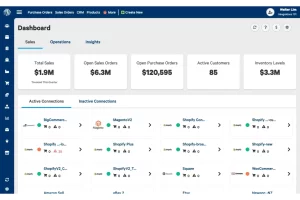
Cin7 is a versatile ERP solution tailored to meet the needs of businesses in the Philippines. Its seamless integration with various e-commerce platforms and third-party applications makes it a flexible alternative to Odoo ERP.
Cin7’s emphasis on real-time data and operational visibility supports informed decision-making and helps businesses improve their overall efficiency.
|
Pros |
Cons |
|
|
14. Hooman ERP
Hooman ERP is an emerging ERP solution developed in the Philippines. It is specifically designed to address the unique requirements of small and medium-sized enterprises (SMBs).
This application focuses on enhancing local businesses’ operational efficiency and productivity by offering a suite of tailored services.
Hooman ERP encompasses various functionalities, from accounting management to inventory control, equipping SMEs with essential tools to thrive in today’s competitive environment.
|
Pros |
Cons |
|
|
15. ECOUNT ERP Software
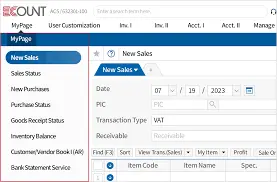
ECOUNT ERP Software is a versatile solution designed to support the diverse needs of businesses in the Philippines. This comprehensive platform integrates essential functions such as accounting, inventory management, sales, and customer relationship management into a unified system.
Its cloud-based architecture allows for real-time data access and seamless collaboration, enhancing operational efficiency. ECOUNT ERP provides businesses with the tools necessary to optimize their processes and drive growth, offering a practical alternative to Odoo ERP.
|
Pros |
Cons |
|
|
Selecting the Appropriate Software for Your Business Needs
Selecting the right software for your business is an important decision that can significantly impact your company’s efficiency and success. To ensure you make the right choice, consider these key factors:
- Business requirements: First, assess your business needs and goals thoroughly. Identify the functions and features needed to support your company’s operations, such as accounting, inventory, or customer relationship management.
- Scalability: Make sure the software can grow with your business. Look for scalability and flexibility solutions to accommodate future expansion and changing requirements.
- Integration capabilities: Evaluate how well the software integrates with your existing systems and applications. Seamless integration can improve workflow efficiency and data consistency.
- User-friendliness: Choose software with an intuitive, easy-to-use interface. User-friendly platforms reduce the learning curve and increase productivity by allowing employees to adapt to new systems quickly.
- Cost: Consider the total cost of ownership, including initial licensing costs, implementation costs, and ongoing maintenance costs. Make sure the software provides good value relative to its features and benefits.
- Support and training: Assess the customer support and training level the software vendor provides. Reliable support and comprehensive training resources are critical to a smooth transition and effective use of the software.
By carefully evaluating these factors, you can select a software solution that fits your company’s business needs and contributes to its long-term success.
Conclusion
Implementing a robust ERP system is essential for businesses in the Philippines, aiming to improve their operational efficiency and sustain growth. Choosing the right ERP software tailored to your specific needs can streamline your processes, enhance data management, and support better decision-making.
Among the numerous alternatives to Odoo, HashMicro emerges as a highly recommended option. It offers comprehensive features and adaptable solutions for a wide range of industries.
To help you make an informed decision, HashMicro offers a free demo of its software, allowing you to assess its capabilities and suitability for your business before making a commitment.




































